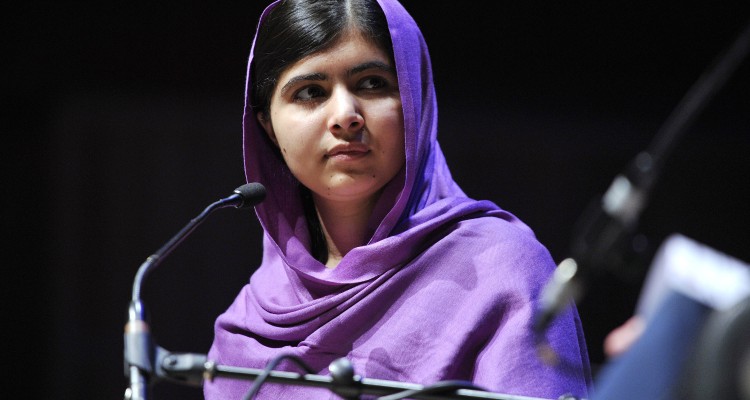TIME 100 is an annual list of the most influential people in the American world. But after seeing the lineup for 2015, I am not convinced of the accuracy of who should be considered a worldwide, influential individual. Despite TIME editors being the ones to determine the final list of the year’s most influential people, the general public still has too much of a voice in the decision-making process. Although some may argue that the public ought to have the opportunity to voice their perspective on whom they consider to have made an impact in the past year, doing so runs the risk of the list becoming less about those who are truly world influences and more about the nearly 20 percent in the arts section who are simply temporary trend-setters, only to be recycled and replaced by the next relevant celebrity with a large fan base.
The 2015 line-up for TIME 100 consists of well-known icons, both positive, such as Malala Yousafzai, the young Pakistani activist for female education and Laverne Cox, a well-known transgender activist; and negative, such as Vladimir Putin, who is considered by many to be a growing threat while acting as the current president of Russia. I consider these entrants and recipients of the honor, though impacting the world in vastly different ways, to nonetheless exhibit and implement the change that TIME considers a prerequisite in order to be included on the list.
However, my main issue with TIME 100 is that the list consists of a multitude of subcategories that measure a person’s influence in extremely different ways. Although TIME has clarified in the past that entrants can be acknowledged and considered influential regardless of whether his or her actions as individuals are perceived as beneficial or harmful to the world, there needs to be a stronger control on the public’s voting that allows for a more succinct standard when deciding who has truly left a long-term mark on our society.
Celebrities such as Amy Schumer, Kim Kardashian West and Kevin Hart come to mind when I consider dubious recipients to be featured on the 2015 edition of TIME 100. While these honorees may deserve notable recognition for their contributions to their respective areas in the arts, TIME 100 is not the appropriate place to honor them. There is little question of Schumer’s quick wit, Kardashian West’s ability to market herself and redefine family structure while under public scrutiny and Hart’s rise in comedy that has allowed him to secure the role as the current, biggest stand-up comedian in the country. However, celebrities such as these should be acknowledged separately or honored amongst others who have garnered similar approval and achievements in their area of performance.
TIME 100 should reflect those who impact the world rather than those who create a form of art that only a select group of people in our society enjoy or engage in. As noted previously, these personalities are not undeserving of recognition, but the most influential people in the American world should be those who, for better or worse, leave an indelible mark on the world.
TIME undoubtedly has a difficult job as it undertakes the task of condensing the extensive list of influential people in our world to a list of merely 100. Although the annual list presents decent diversity, I would not be surprised if there is a long list of revolutionary icons that did not make the final cut because they are less known and prevalent as opposed to those who are consistently featured in mainstream and social media. Considering that fact, TIME 100 should recognize those people who escape notice and whose contributions, whether positive or negative, are significant enough to change the course of the world in which we live.


Leave a Reply